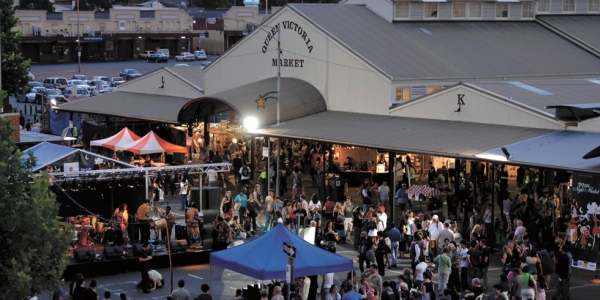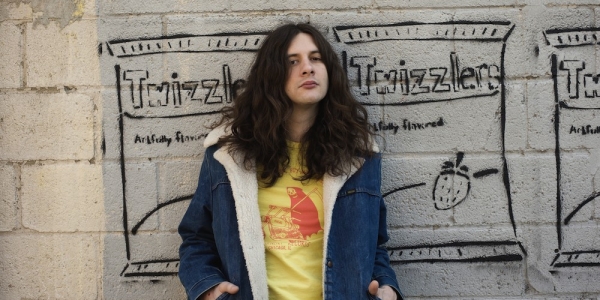The first night market was pulled together in six weeks, which Queen Victoria Market Chief Executive Officer Jennifer Hibbs describes as “a bit of a miracle”.
“It was something that at the time was new for not just Melbourne, but also Australia,” Hibbs says. “Obviously as market operators we have an interest in markets when we travel, so a lot of us had seen night markets in Asia. We weren’t keen to replicate that exactly, but to offer a Melbourne interpretation of that sort of night market. We were keen to do something that was different for Melbourne, and which was outside of our normal trading hours.”
While the night market started out with an obvious local focus, Hibbs says its demographic target has evolved over the years in line with popular attendance and critical acclaim. “It started out as an event for locals, but over the years it’s gradually grown in terms of interest,” Hibbs says. “Now people who’re visiting Melbourne come to it.”
The popular success of the Queen Victoria Night Market was acknowledged officially last year, when the market won Tourism Victoria’s Best Festival Event award. “It was a bit of a secret in its early days, and appealed initially to an offbeat audience, whereas now it appeals to more of a mainstream audience,” Hibbs says.
While Hibbs says about 25 percent of the traders at the night market also trade in the day market, “even with those traders, one of the criteria is what’s different with their night stall from what they do during the day”. Marketing manager Misti Dullard points to the festival’s by-line – When the weird and wonderful come out at night’ – as the crucible for many of the market’s new attractions. “We’re always looking at things that are not readily available during the day,” Dullard says. Dullard says the Queen Victoria Market staff keep their ear to the ground for interesting ideas and stalls, with the aim of ensuring the night market remains fresh and unique from year to year.
Competition for spots at the night market is intense, with applications arriving almost as soon as the current year’s event concludes. “It’s not necessarily easy to get in,” Dullard says. “There has to be a niche aspect to the stall, a point of difference, or a gap that needs to be filled.” Hibbs re-iterates that the night market is intended to have an ‘incubator’ element, with featured stalls typically in the nascent stage of their retail development. “Many of the traders have gone onto operate businesses elsewhere, whether that’s within the city, in our day market or within the broader Melbourne area,” Hibbs says. “For us, markets should be about incubation, about keeping it fresh and new, and providing an entry level market to allow people to test the waters for a product,” Dullard says.
Dullard says highlights of this year’s night market include Argentinean cuisine, while non-culinary stalls will feature examples of the burgeoning craft market. “That reflects what’s happening in Melbourne as a whole at the moment – that flavour is certainly coming through,” Dullard says. “There’s also a big focus on locally grown, locally made.” Another new ingredient in the night market is a medium. “We have a health and wellbeing section in the market where you can get a foot massage or a raiki. We’ve always had the tarot readers and clairvoyants but this year we’ve got a medium as well, which made for a very interesting interview,” Dullard laughs.
Another ingredient in the Night Market is the entertainment, which this year again features a mixture of musical acts. With crowd numbers regularly stretching to the tens of thousands, the night market provides a ready-made stadium size audience. This year sees the Queen Victoria Market partnering again with Multicultural Arts Victoria to develop the entertainment program. “Again, there’s an incubator aspect to the entertainment program, so we look for local acts who’re looking to play before a bigger audience” Dullard explains. “It’s a great platform for emerging bands.”
One aspect of the event that’s proved surprisingly successful is the serving of alcohol courtesy of the market’s temporary liquor licence. “We commissioned some market research years ago, and one of the things that came back was that we shouldn’t make it a licensed event,” Hibbs says. “But we decide to license it, and it’s been very successful – which just goes to show that you shouldn’t always go along with market research,” Hibbs laughs.







